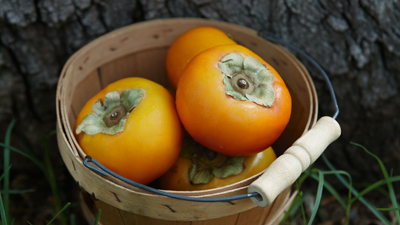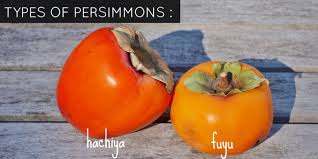News
- Home
- News
- Posts
- Latest Market Morsels
- 21 May 2016
21 May 2016

Persimmons:
Seeing these everywhere?? Of course you are, it’s their season but what do you do with them and how do you eat them and are they good for you??
Persimmons are attractive small trees that suit both large and small gardens. Even if you don’t like eating persimmon fruit, the trees are worth growing for their fabulous autumn colour. The leaves turn glorious shades of red, orange and gold before dropping in autumn, often leaving the fruit hanging decoratively on the bare branches.
Traditional persimmon varieties like “Hachiya” are classed as astringent, which means they can only be eaten when they’re ripe and very soft. Newer varieties like “Fuyu” are non-astringent. Non-astringent varieties can be eaten while the fruit is still firm.
Persimmons are best planted during the cooler months, which will give them as much time as possible to get established before next summer’s heat. The branches are brittle and break easily – especially when weighed down by the fruit – so choose an open, sunny spot that’s sheltered from strong winds.
Once again, vitamin A shows itself to be a powerhouse in nutrition, offering 55% of the daily value in the persimmon. Vitamin C runs a close second with 21%, plus excellent amounts of manganese, a co-factor for the enzyme superoxide dismutase, for healthy mucous membranes and skin, as well as a known protectant against lung and mouth cancers.
Persimmons are an excellent source of fiber, which helps keep the body regulated. B-complex vitamins are present to stabilize the metabolic system, along with copper and phosphorus.
Low in calories and fats, this little fruit contains all kinds of phytonutrients, flavonoids, and antioxidants, such as catechins (known to have antibiotic and anti-inflammatory properties, and for protecting small blood vessels from bleeding) as well as gallocatechins and betulinic acid, a tumor inhibitor. Other powerful antioxidants found in persimmons include beta-carotene, lycopene, lutein, and cryptoxanthin. The zeaxanthin content absorbs into the eyes and helps filter light.
However, consume persimmon in moderation because it contains fructose, which may be harmful to your health in excessive amounts.
http://www.persimmonsaustralia.com.au/recipes/



